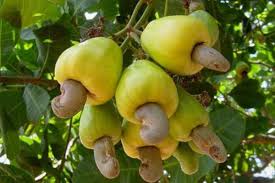At just 24 years old, Jackline Nabwire from Bukwanja Village in Namayingo District has already lived through challenges that could have broken her spirit.
Married at only 17, she became a mother while still a child herself. Life was a daily struggle — her small harvests of maize and cassava barely fed her family, and she often went to bed wondering what tomorrow would bring.
“I used to think life would never change,” Jackline recalls. “I felt lost and powerless.”
One day, while attending her antenatal visit at Bumooli Health Centre, Jackline overheard a discussion that would change everything.
Health workers and agricultural experts were talking about kitchen gardens — small home gardens that can provide nutritious food for families. Curious, she joined the session.
“I learned how to prepare soil beds, plant seedlings, use compost, and protect crops from pests,” she says with a smile. “It was practical and easy to understand.”
But for Jackline, it wasn’t just about growing vegetables — it was about growing hope.
Through the 2gether 4 SRHR programme — a joint initiative by UNICEF, the Uganda Ministry of Health, and partners — young mothers like Jackline are receiving combined health and nutrition support.
The programme helps teenage mothers access friendly, stigma-free health services, while also teaching life skills such as gardening, financial literacy, and parenting.
In Namayingo District, where teenage pregnancy affects about 27% of girls and malnutrition is common, these efforts are transforming lives. Many young mothers who once hid in shame are now attending clinics with confidence and building better futures for their children.
Jackline’s small garden, once a patch of dry soil, now overflows with sukuma wiki (collard greens), tomatoes, and onions. Every morning, she waters her plants carefully, proud of what she has built.
“I now cook healthy food for my children and sell the extra to buy soap, salt, and books for school,” she explains. “Even my youngest child, Okello, looks stronger and healthier because I’m eating well too.”
Her success has inspired other mothers in the community. “People come to my home to buy vegetables or to learn how to start their own gardens,” she says proudly. “Some of their husbands are also helping out now. It brings families together.”
Health workers say kitchen gardens have become a gateway to wider education. According to Sadat Mukasa, an Assistant Nursing Officer at Bumooli Health Centre, “We use these sessions to talk about family planning, HIV prevention, and economic empowerment. When women plan their families and eat well, they can work better and earn more.”
Midwife Sarah Mirembe adds, “We’ve seen big changes. Teenage mothers who used to be shy or withdrawn are now more confident. Some have even become peer mentors.”
Today, Jackline is more than a mother and farmer — she’s a mentor. She teaches other young women in her village what she learned from the programme. “Before, I felt invisible,” she reflects. “Now I’m someone who provides for my family, helps others, and dreams of starting a poultry project next.”
Her story shows how a small idea — a few vegetable beds and the right support — can transform lives.
Across Eastern and Southern Africa, the 2gether 4 SRHR programme, supported by Sweden and led by UNICEF,
UNAIDS, UNFPA, and WHO, is helping thousands of adolescents and young mothers like Jackline access health, nutrition, and mentoring services.
The results are clear: improved maternal health, better child nutrition, and stronger, more resilient communities.
Africa has the youngest and fastest-growing population in the world. With the right support, young women like Jackline can be at the heart of a new generation of healthy, empowered families.
As Jackline puts it, looking proudly at her thriving garden,
“I planted vegetables, but what really grew was my confidence and hope for the future.”



